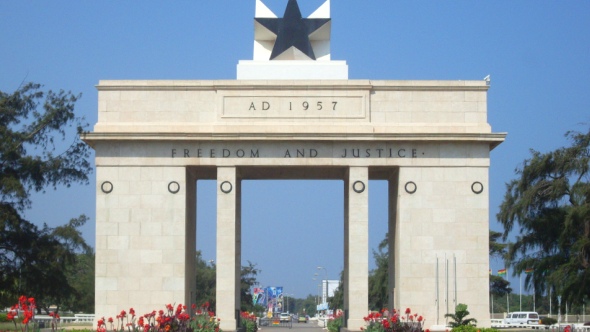Ghana Politics: Political History After Colonialism
Ghana was colonised by the British around the 1870s and was under colonialism for centuries. The country gained political independence in March 1957, thanks to years of political negotiations, making it the first country in sub-Sahara Africa to be freed from colonialism.

Ghana Politics: Political History After Colonialism
Ghana was colonised by the British around the 1870s and was under colonialism for centuries. It gained political independence on March 6, 1957, thanks to years of political negotiations and agitations from pressure groups and individuals such as its first President, Dr Kwame Nkrumah. Its attainment of independence in 1957 made it the first country in sub-Sahara Africa to be freed from colonialism.
Ghana gained political independence on March 6, 1957, thanks to years of political negotiations and agitations from pressure groups and individuals. Its attainment of independence made it the first country in sub-Sahara Africa to be freed from colonialism.
That was after Dr Kwame Nkrumah’s Convention People’s Party won a 1951 general election to make its top hierarchy the leaders of government business.
Having led the struggle against British rule, which he described as imperialism, Dr Nkrumah, often regarded as an icon of freedom in modern day Ghana, and his CPP, ruled the country till February 24, 1966, when he was overthrown by the National Liberation Council (NLC). Dr Nkrumah was the Prime Minister from 1951 till 1960, when the country was declared a republic.
The NLC, which overthrew Dr Nkrumah on the grounds of dictatorship, was made up of a group of military personnel from the Ghana Armed Forces and the Police and were led by Lt. General Joseph Arthur Ankrah. General Ankrah was, however, removed from office by Lt. General Akwasi Amankwa Afrifa in an apparent in-house coup d’état. A three-man Presidential Commission, with General Afrifa as Chairman, was formed in 1969 to return the country to democratic rule.
A general election later that year brought the Progress Party (PP) to power with Dr Kofi Abrefa Busia as Prime Minister and Mr Edward Akufo Addo as President.
Then, on January 13, 1972, a section of the Armed Forces, led by Colonel Ignatius Kutu Acheampong, took over the reins of government under the National Redemption Council (NRC). Colonel Acheampong later promoted himself to an army general and the council changed from National to Supreme Military Council (SMC). However, a palace coup in July 1979 toppled General Acheampong with General F.W.K. Akuffo replacing the later as the president.
Then came the young and versatile Flt.-Lt. Jerry John Rawlings and his Armed Forces Revolutionary Council (AFRC). Flt.-Lt. Rawlings, who would later return the country to its current constitutional rule, led a revolt by some junior officers of the army with the excuse that there was massive corruption in the government of the SMC, which was made up of senior officers of the army.
The AFRC stayed in power for only three months within which it undertook a house cleaning exercise in the army and society resulting in a massive blood shed, and brought back some level of morality in property appropriation, accountability and equity in poultice office.
It handed over power on September 1979 to a civilian regime – the People’s National Convention – which was then headed by Dr Hilla Limann from the northern part of the country. Continue reading…